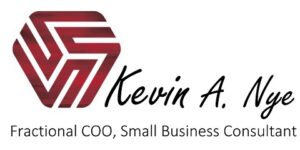For small business owners, staying on top of customer relationships is essential for growth. You need to track leads, manage interactions, and nurture prospects, all while keeping everything organized and efficient. One of the best tools for doing this is a Customer Relationship Management (CRM) system.
But here’s the problem: many CRMs are designed for larger businesses with complex workflows, leading to overwhelming features, high costs, and a steep learning curve. If you’re a small business owner, the last thing you need is a complicated system that adds to your stress instead of solving problems.
Why You Need a CRM and What It Should Do for You
A CRM system helps you manage your interactions with customers, prospects, and leads. It serves as a central hub for tracking conversations, follow-ups, appointments, sales pipelines, and more.
What a good CRM should do for your small business:
- Centralize customer data: Have all your contacts, emails, and interactions in one place.
- Track sales and progress: Know exactly where each lead is in the sales funnel and what steps to take next.
- Automate repetitive tasks: Set reminders, follow-ups, and email sequences to save you time.
- Improve customer relationships: Keep track of customer preferences, inquiries, and past conversations.
- Provide insight and reporting: Get simple reports that show how your sales, marketing, and customer service efforts are performing.
A CRM should make your life easier by organizing information and automating tedious tasks, so you can spend more time building relationships and less time managing chaos.
Pain Points Small Business Owners Face with CRMs
Choosing the right CRM for your business can feel overwhelming. There are dozens of options, ranging from simple tools to feature-packed platforms that offer everything under the sun.
Here are some common pain points that small business owners face when choosing a CRM:
- Too many features: Many CRMs are packed with features you don’t need or won’t use, making them difficult to navigate and frustrating to set up.
- Overly complex setup: If a CRM requires extensive configuration and training, it can cause unnecessary delays and confusion.
- High cost: Some CRMs are expensive, especially for small businesses that don’t have a lot of budget flexibility.
- Poor integration: If your CRM doesn’t integrate well with your other tools, it can create more work and data silos.
- Not user-friendly: A CRM that isn’t intuitive can quickly become a chore, discouraging you and your team from using it regularly.
You don’t need a CRM that offers every feature under the sun. You need one that solves the problems you face on a daily basis without adding complexity.
Step 1: Understand Your Business Needs
Before diving into CRM options, take a moment to reflect on your business’s specific needs. Not every CRM is created for every business type, so understanding what you actually need is the first step in choosing the right system.
Consider these questions:
- What’s your primary goal for using a CRM? Are you trying to streamline sales, track customer support, or manage marketing campaigns?
- How many people will be using the CRM? A CRM for a solo entrepreneur or small team needs to be different from one designed for large sales teams.
- What tools do you already use? Do you need the CRM to integrate with your email marketing system, social media tools, or accounting software?
- How much time can you dedicate to learning a new tool? If you or your team are short on time, choose a CRM that’s easy to set up and use.
The more specific you can be about your goals, the easier it will be to choose a CRM that meets your needs without being too complicated.
Step 2: Look for User-Friendly, Simple Features
As a small business owner, you don’t have the time or energy to deal with complex systems. Look for a CRM that is simple, easy to set up, and easy to use.
Key features to look for:
- Contact management: A simple contact list with customer details, interactions, and notes
- Sales pipeline management: A visual sales pipeline that shows where each lead is in the sales process
- Task and follow-up reminders: Automate reminders for follow-ups, meetings, and calls
- Email tracking: Track when and how often your emails are opened and responded to
- Reporting: Basic but meaningful reporting on sales, lead conversions, and team performance
You don’t need to buy the most expensive CRM with every feature under the sun. Focus on what will help you stay organized, manage leads, and provide better customer service.
Step 3: Consider Integration with Existing Tools
One of the biggest mistakes small business owners make is choosing a CRM that doesn’t integrate well with the tools they already use. You don’t want to duplicate efforts or lose time importing and exporting data manually.
Consider these integrations:
- Email and calendar: Does the CRM integrate with your email provider (Gmail, Outlook, etc.)?
- Accounting or invoicing software: Is the CRM able to sync with tools like QuickBooks or Xero?
- Social media: Can you manage social media contacts or post directly from the CRM?
- Project management: Does it work with tools like Trello, Asana, or Monday.com to help track tasks and projects?
The more your CRM works with your existing tools, the smoother your workflow will be. Aim for seamless integration, so you don’t end up with siloed data and disconnected systems.
Step 4: Don’t Overlook Customer Support
Even the best CRM can hit a few snags during setup or use. That’s why it’s important to choose a CRM with great customer support. Look for:
- Online tutorials and resources: Does the CRM provide easily accessible learning materials?
- Live chat or email support: Is there a way to reach support quickly if you need help?
- User community: Does the CRM have a vibrant online community where you can exchange tips and ideas with other users?
A CRM with good customer support will help you troubleshoot quickly and make the most of the system, without getting frustrated by roadblocks.
Step 5: Evaluate Pricing and Scalability
Pricing is a huge factor when choosing a CRM for your business. You want a solution that fits your budget and offers the features you need—without paying for extras you won’t use.
Key pricing considerations:
- Pricing tiers: Does the CRM offer flexible pricing based on your business size and needs?
- Free trial: Can you try the CRM before committing to a long-term contract?
- Add-ons: Are there additional features you can buy later if your business grows?
- Upgrade paths: Can the CRM scale with your business as it expands?
Make sure the CRM’s pricing model works for you, and avoid systems that charge for every additional feature.
Step 6: Test It Out
Once you’ve narrowed down your choices, take each CRM for a test drive. Many platforms offer free trials, so you can experiment with the features before making a decision.
Key things to test:
- Ease of use: How intuitive is the system?
- Customization options: Can you easily add fields, tags, or workflows?
- Automation capabilities: How well does the CRM automate tasks and reminders?
- Integration with existing tools: Does the CRM sync well with your other business tools?
Testing it out will give you a sense of whether it’s the right fit for your business.
Final Thoughts: Choose What Works for You
Choosing a CRM doesn’t have to be overwhelming. The key is to focus on your goals, keep it simple, and choose a system that integrates well with your existing tools. Whether you’re looking to organize leads, streamline sales, or improve customer service, the right CRM will help you get there without creating unnecessary complexity.
Remember, your CRM should work for you, not the other way around. Following the steps outlined here will help you to choose a CRM that supports your business, helps you build stronger relationships, and ultimately drives growth.


